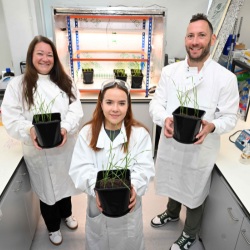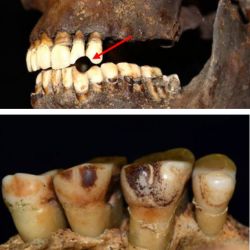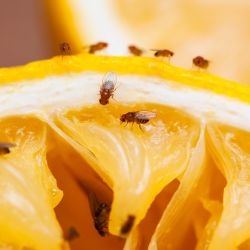Northumbria expands results day support for students
Northumbria University is expanding and enhancing the support it provides to students receiving…
International
Northumbria’s global footprint touches every continent across the world, through our global partnerships across 17 institutions in 10 countries, to our 277,000 strong alumni community and 150 recruitment partners – we prepare our students for the challenges of tomorrow. Discover more about how to join Northumbria’s global family or our partnerships.
View our Global FootprintBusiness
The world is changing faster than ever before. The future is there to be won by organisations who find ways to turn today's possibilities into tomorrows competitive edge. In a connected world, collaboration can be the key to success.
More on our Business ServicesResearch
Northumbria is a research-rich, business-focused, professional university with a global reputation for academic quality. We conduct ground-breaking research that is responsive to the science & technology, health & well being, economic and social and arts & cultural needs for the communities
Discover more about our ResearchAlumni
Northumbria University is renowned for the calibre of its business-ready graduates. Our alumni network has over 253,000 graduates based in 178 countries worldwide in a range of sectors, our alumni are making a real impact on the world.
Our AlumniWhat is the hysteria with Listeria?
Edward Fox 21/06/2023
Each year in the UK there are estimated to be 2.4 million cases of foodborne illness caused by foods contaminated by pathogenic microorganisms. Most of these usually involve spending more time than usual on the toilet, mixed in with some vomiting – what made you sick is usually unknown, maybe that dodgy take away coming back to haunt you? This is typically referred to as foodborne gastroenteritis, when you are sick because of a food you ate, and most people usually recover within a couple of days, once their immune system has managed to clear the infection.
In the UK most cases of foodborne gastroenteritis are caused by two types of bacteria, Campylobacter and Salmonella. But there’s another bacteria that, although much rarer in terms of the number of illnesses it causes, is notorious because of how deadly it infections can be. This bacteria is called Listeria monocytogenes.
What is Listeria monocytogenes?
Listeria monoctogenes is a bacteria that is commonly found in the environment, including in soil and water. However, since we use soil to grow crops, or to grow grasses for food animals to graze on, and likewise we use water for irrigation or for these animals to drink, Listeria has a direct route from the environment into our food chain.
Listeria monocytogenes is a survivor – it can persist through food production systems, stowing away on contaminated food ingredients and entering food processing environments, where it can then cross contaminate food products. The food industry directs a lot of effort to control Listeria and keep our foods free of this bacterium, and generally does an excellent job of this, with the UK among the highest in food safety standards globally. However, because this bacterium is so widely dispersed in the environment, and can even sometimes resist disinfectants used to kill it, on rare occasion the bacterium can manage to make its way into food products we produce.
What happens if we eat food contaminated with Listeria?
If we happen to eat a food product contaminated with Listeria monocytogenes, we may develop an infection. People at particular risk of developing an infection are pregnant women, the elderly, and immunocompromised individuals. In fact, this is why pregnant women may be advised to avoid certain foods, like uncooked soft cheeses or pâtés. For those who go on to develop a severe Listeria monocytogenes infection, up to 1 in 5 can be fatal. In some cases, contaminated foods can lead to outbreaks of illness in the population, which can lead to food recalls of contaminated food products.
What should I do to avoid possible Listeria monocytogenes infection?
The good news is that our high food safety standards in the UK mean we are highly unlikely to be exposed to this harmful bacteria. However, to help reduce any risk of exposure, there are a number of good practices you can follow, such as always making sure your food is thoroughly cooked (this is very effective at killing any Listeria in your food), don’t consume foods past their use-by date, and always follow storage and cooking instructions on food products.
What research is being undertaken at Northumbria University to help understand and control Listeria monocytogenes in food systems?
At Northumbria University, we are studying how Listeria can survive in food systems such as food processing environments, to help us improve control efforts to prevent it cross-contaminating food products. We use DNA sequencing technologies to help us understand these mechanisms, direct new strategies food producers can use to help control Listeria, and help ensure the food we eat does not carry this bacteria!
For more information on our Listeria research work, please contact Dr Edward Fox.

Northumbria University is expanding and enhancing the support it provides to students receiving…

With the global population expected to reach 10 billion by 2050 and crop yields declining annually,…

An Assistant Professor at Northumbria University won the Royal Society of Chemistry’s Award…

Researchers from Northumbria University have discovered that smokers have tell-tale signs of…

Northumbria University has been named Higher Education Institution of the Year at a prestigious…

Two biomedical sciences researchers from Northumbria University have been awarded grants to…

The Spring 2025 edition of Northumbria University’s newspaper is available to collect on campus…

Scientists have discovered that flies can demonstrate play-like behaviour – the first time…

Northumbria University

Northumbria University
-